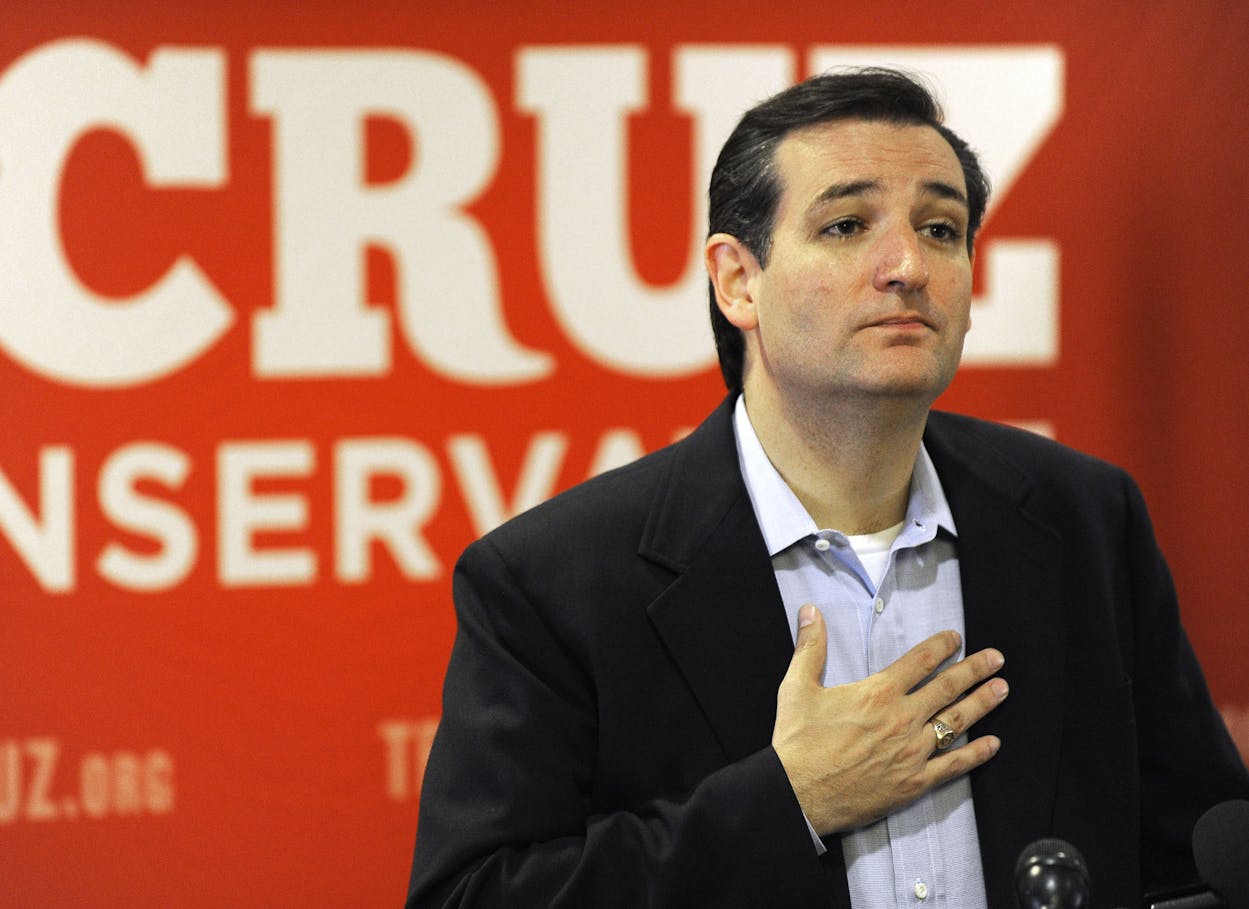Ted Cruz’s conservative belief system was forged at age 13 in an after-school program in Houston that was designed “groom a new generation of true believers in the glory of the free market,” according to a profile in the new issue of Mother Jones. And, almost 30 years later, the worldview of Texas’s likely U.S. Senator has remained “unflinchingly consistent.”
So, what does Cruz—christened the “next great conservative hope” by the National Review—believe? Here’s how Tim Murphy summed up his ideology in his piece, which is not yet available online, from the magazine’s November/December 2012 issue:
Cruz, who turns 42 in December, represents an amalgam of far-right dogmas—a Paulian distaste for international law; a Huckabee-esque strain of Christian conservatism; and a Perry-like reverence for the 10th Amendment, which he believes grants the states all powers not explicitly outlined in the Constitution while severely curtailing the federal government’s authority to infringe on them. Toss in a dose of Alex P. Keaton and a dash of Cold War nostalgia, and you’ve got a tea party torch carrier the establishment can embrace.
As a teen in Houston, “[i]nstead of reading comic books, he was reading Adam Smith, he was reading Milton Friedman, he was reading von Mises, he was reading Federic Bastiat,” Cruz’s father Rafael Cruz told Murphy on the floor of the Republican National Convention. Such was the curriculum in his after-school program at the Free Enterprise Education Center (along with a healthy helping of Ron Paul’s newsletters). Cruz quickly outshined his peers. “He was so far head and shoulders above all the other students—frankly, it just wasn’t fair,” said Winston Elliott II, who took over the program from its founder, Rolland Storey.
The promising young student went on to attend Princeton and Harvard Law School, burnishing his intellectual credentials in the Ivy League. As an undergraduate, he was a star debater and penned a thesis titled “Clipping the Wings of Angels,” on the ninth and tenth amendments, Murphy reported. His argument in that thesis, that the Constitution gives the states unspecified powers, is something he often returns to:
Cruz’s worldview has remained unflinchingly consistent. Challenged at a Federalist Society panel in 2010 to defend his proposal to convene a constitutional convention to draft new amendments aimed at scaling back federal power, he paraphrased his 21-year-old self: ‘If one embraces the views of Madison … which is that men are not angels and that elected politicians will almost always seek to expand their power, then the single most effective way to restrain government power is to provide a constraint they can’t change.’
One thing has changed, though, in the two decades since Cruz penned his thesis: His views had started to creep from the fringe to the fore.
Cruz has emerged as the “thinking man’s tea partier” who can move seamlessly from arguing in front of the Supreme Court (which he’s done eight times) to a rural tea party rally.
Cruz ran as an outsider, even though his credentials—Harvard Law Review, Rehnquist court, Bush campaign, Perry administration—did not fit that billing. But, schooled since childhood in its tenets, he spoke the language of the tea party fluently. … Cruz’s greatest asset is that he lives in both worlds.







